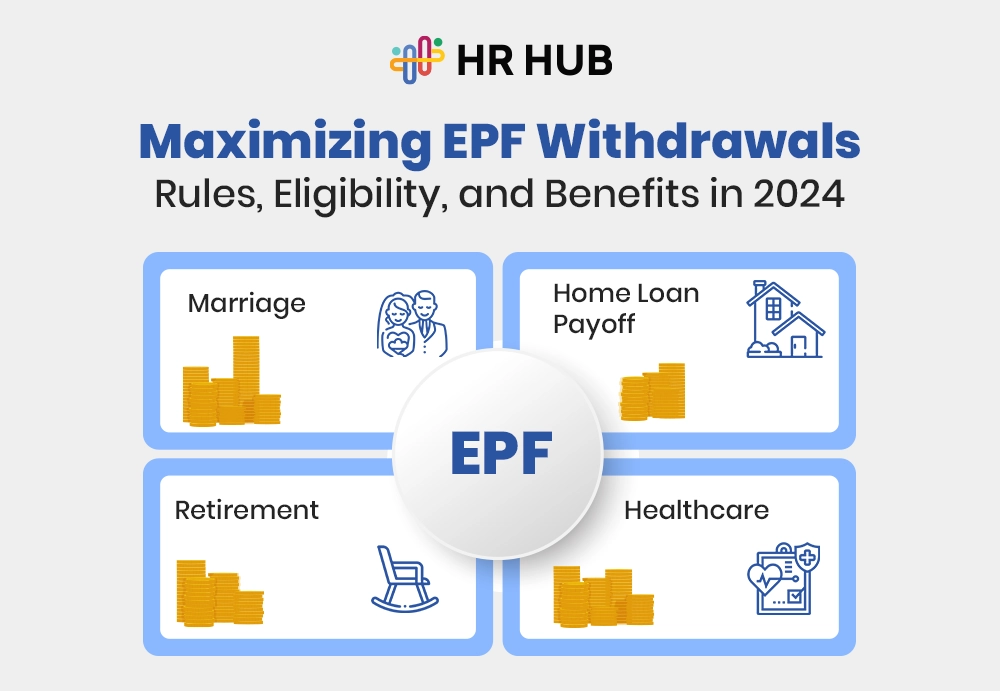Proper human resource management is the key to succeeding in today's fast-running business world. From payrolls and attendance and performance tracking to compliance, there is much work involved for an HR team in running a smooth company. Therefore, HRMS (Human Resource Management System) has smoothed these processes, thus increasing an organization's productivity and accuracy.
Whether you operate an SME or a large corporation, investing adequately in HRMS software saves multiple hours and enables your staff members to focus on what matters: growing your business.
This blog will discuss the top 10 advantages of HRMS software for changing the game of HR operations, resulting in an efficient organization and employee-friendly operations. Let's get started!
Introduction to HRMS
An HRMS is a powerful tool to simplify the daunting process of managing an organization's human resources.
Organizations of any size, business type, location, and operating under various business logic require efficient methods to handle myriad HR operations.
HRMS aids in managing extensive data across areas such as employee records, tracking attendance, monitoring leaves, overseeing work, managing employee salaries, recruitment processes, performance evaluations, and benefits administration.
Traditional HR Management Methods vs. HRMS
Traditionally, HR information management ranged from verbal communication, the most basic form, to spreadsheets like Excel or accounting software like Tally for digital record-keeping. However, these methods often lack the integration and automation capabilities that modern HR demands.

On the other hand, HRMS provides a streamlined, automated solution through payroll, attendance tracking, and compliance management. Centralizing information and automating routine jobs improve efficiency, accuracy, and productivity, benefiting businesses in a competitive market.
The Importance of HRMS Software
The HRMS transforms how businesses manage their human resources. It automates and centralizes data, significantly saving time and reducing errors. That is why an HRMS implementation is essential for contemporary business organizations.
- Automation of Routine Tasks: HRMS automates routine work like processing payrolls, maintaining attendance records, and leaving tracking records. What required hours now can be done within minutes.
- Improved Data Accuracy: The HRMS minimizes manual data entry in the system, thereby reducing errors in crucial work such as salary calculation and attendance tracking. This means that the records are accurate and decisions reliable.
- Enhanced Compliance: HRMS simplifies compliance with labor laws and regulations for organizations that operate across countries. Automated updates and record-keeping ensure compliance without requiring any extra effort.
- Better Data Security: HRMS secures sensitive information against unauthorized access and data breaches with robust data protection measures. For example, encrypted databases in HRMS ensure that personal employee data is protected.
- Streamlined Communication: An HRMS will also ensure better organizational communication channels as it makes the dissemination of information faster and more effective. For example, changes in policy updates can be quickly distributed to members.
- Efficient Resource Management: HRMS includes performance monitoring, tracking team metrics, and identifying improvement areas. This assists managers in optimizing resource use and improving team efficiency.
- Comprehensive Reporting: HRMS makes report generation easy, providing actionable insights into key metrics such as employee turnover and retention. Reports are helpful for strategic planning and decision-making.
- Accessible Employee Self-Service: This will allow employees to log in, update their profiles and attendance checks, and request leave, freeing up the HR staff to give an impression of self-enablement.
- Scalability: The HRMS adapts easily to increased demands without majorly increasing operational costs. This means businesses could scale without proportionally increasing the number of people in its HR staff.
- Enhanced Employee Experience: The HRMS enhances employee engagement with easy onboarding processes, faster response to employee concerns, and smoother operations experience.
HR HUB: Your Comprehensive HR Solution
HR HUB is the ultimate solution for your HR operations from recruitment to resignation. It becomes your one-stop shop for managing all aspects of human resources.
With HR HUB, streamline your HR processes with robust automation, ensure compliance across different jurisdictions, enhance data security, and significantly improve the overall employee experience. Integrating HR HUB into your business can save time, reduce errors, and focus more on strategic growth than administrative tasks.
Conclusion
Implementing HRMS software in your organization streamlines operations and significantly saves time by automating various HR functions.
As businesses grow, an integrated HRMS becomes even more critical to handle increasing complexities efficiently. And if you want to explore the best HRMS software solution, HR HUB is the one-stop solution for all your business’s HR needs.






